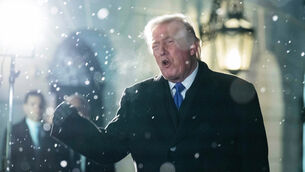Iraqi MPs condemn resolution
President Saddam Hussein, however, has used parliament to provide some cover for difficult decisions in the past, and harsh rhetoric does not necessarily mean parliament will reject the proposal.
Saddam ordered parliament to recommend a formal Iraqi response, but it wasn't clear if a vote would come last night. Iraq has until Friday to accept or reject the resolution, approved unanimously last week by the UN Security Council.














